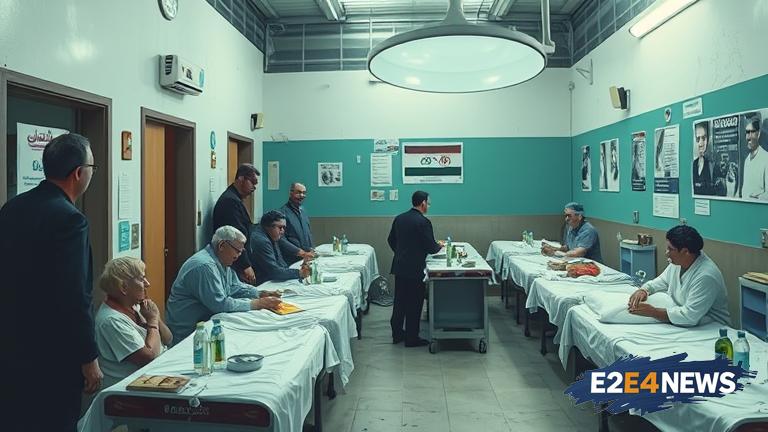The international community has come together to condemn Israel’s recent strike on a hospital in Gaza, which has resulted in significant loss of life and widespread destruction. The attack, which occurred on August 26, 2025, has been widely denounced by allies and non-governmental organizations (NGOs) alike. The United States, a long-time ally of Israel, has expressed deep concern over the incident, with officials calling for a thorough investigation into the matter. The European Union has also weighed in, condemning the strike and urging all parties to exercise restraint. NGOs, including the Red Cross and Doctors Without Borders, have been quick to condemn the attack, citing the need to protect civilians and medical facilities in conflict zones. The strike has sparked outrage across the globe, with protests and demonstrations taking place in cities from London to New York. The incident has also raised questions about the use of force in conflict zones and the need for greater accountability. As the situation continues to unfold, the international community remains vigilant, calling for a peaceful resolution to the conflict. The Gaza hospital strike is just the latest incident in a long-running conflict between Israel and Palestine, which has resulted in significant human suffering and displacement. The conflict has been marked by periodic outbreaks of violence, with both sides accusing each other of aggression. Despite numerous attempts at diplomacy, a lasting peace agreement has yet to be reached. The international community has repeatedly called for a two-state solution, which would see the establishment of an independent Palestinian state alongside Israel. However, progress towards this goal has been slow, with both sides dug in and refusing to budge. The Gaza hospital strike has once again highlighted the need for a peaceful resolution to the conflict, with the international community urging all parties to return to the negotiating table. As the situation continues to unfold, it remains to be seen how the incident will impact the broader conflict. One thing is certain, however: the international community will continue to play a crucial role in shaping the outcome. The United Nations has already begun to investigate the incident, with officials working to determine the facts and hold those responsible accountable. The investigation is likely to be lengthy and complex, with multiple parties involved. In the meantime, the international community will continue to call for calm and restraint, urging all parties to avoid further escalation. The Gaza hospital strike has also raised questions about the role of NGOs in conflict zones, with many organizations working to provide humanitarian aid to those affected. These organizations play a critical role in providing support to civilians, often in the most difficult and dangerous of circumstances. As the situation continues to unfold, it is likely that NGOs will continue to play a key role in providing aid and support to those affected. The international community will also continue to work towards a peaceful resolution to the conflict, with diplomats and officials working behind the scenes to broker a lasting peace agreement. Despite the challenges, there is still hope for a peaceful resolution to the conflict, with many believing that a two-state solution is the key to lasting peace. The Gaza hospital strike has once again highlighted the need for a peaceful resolution, with the international community urging all parties to work towards a lasting peace agreement. In the end, it will be up to the parties involved to find a way forward, with the international community providing support and guidance along the way. The road to peace will not be easy, but with determination and perseverance, it is possible to achieve a lasting peace agreement. The Gaza hospital strike has been a tragic reminder of the human cost of conflict, with many innocent lives lost or affected. As the international community continues to work towards a peaceful resolution, it is essential that we remember the human cost of conflict and work towards a future where such incidents are a thing of the past.
